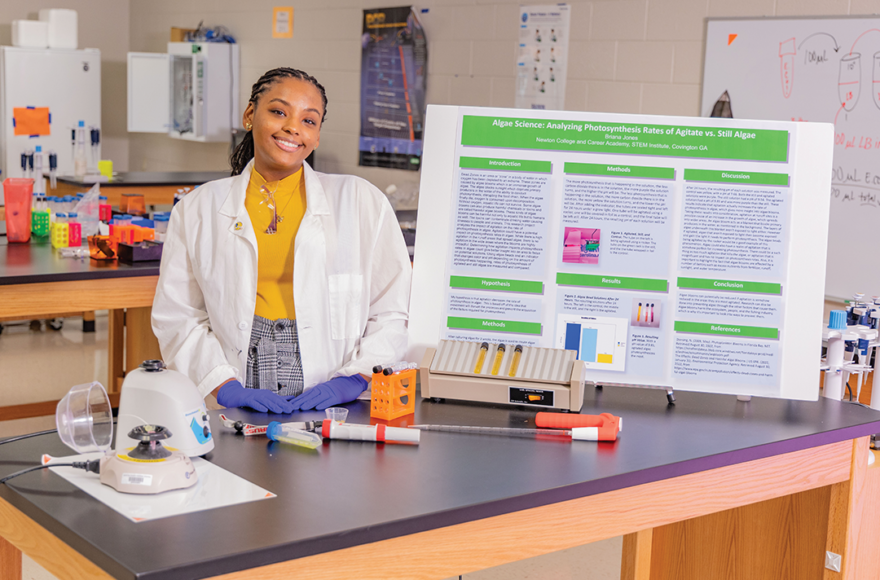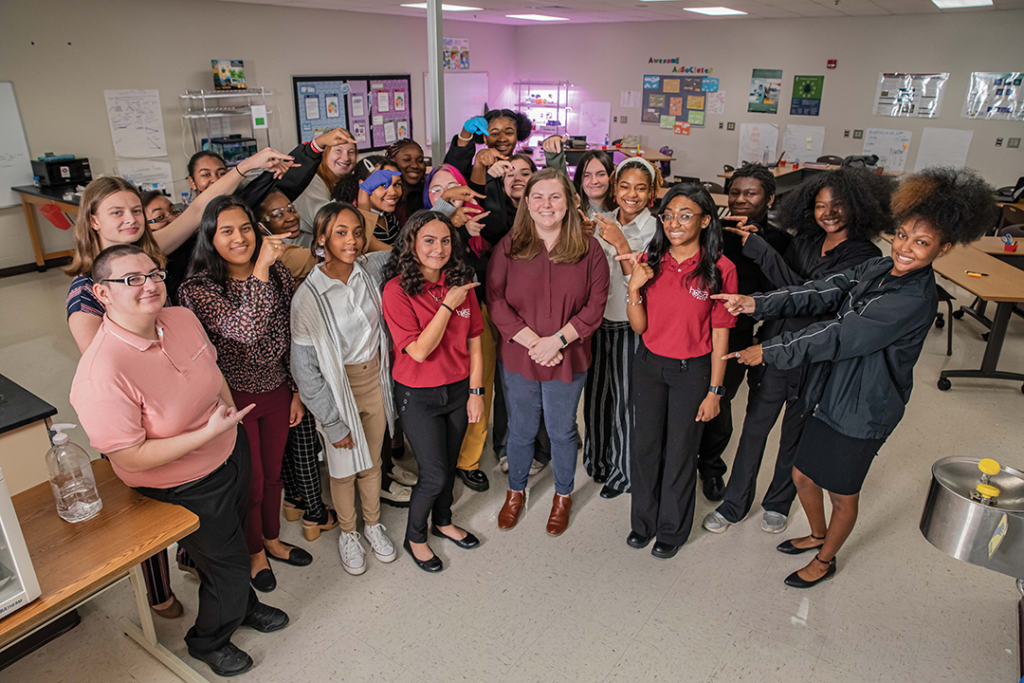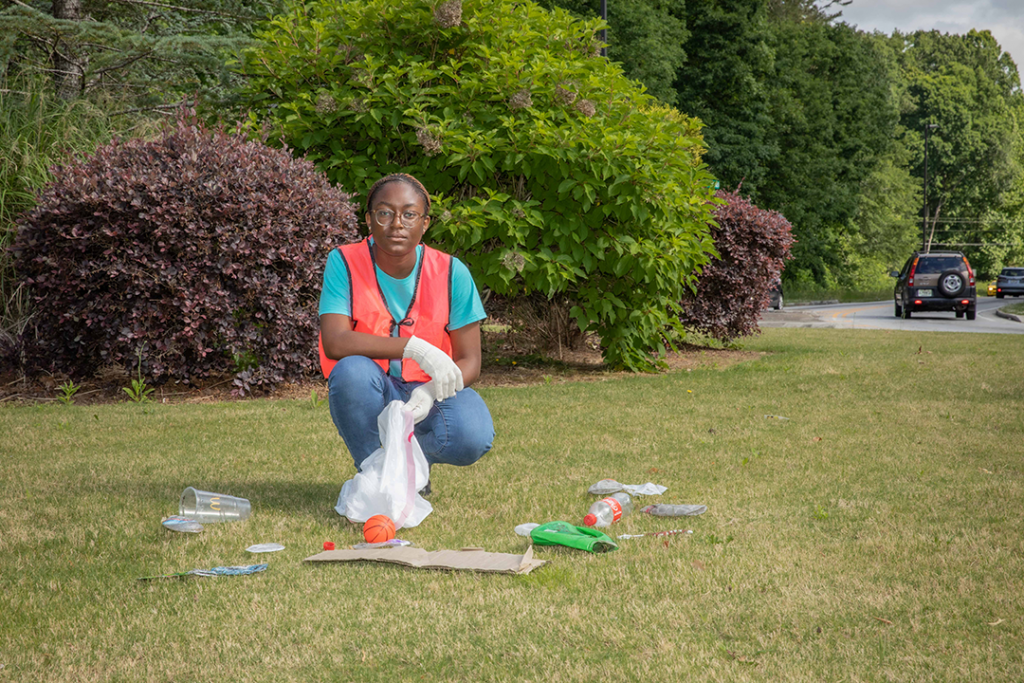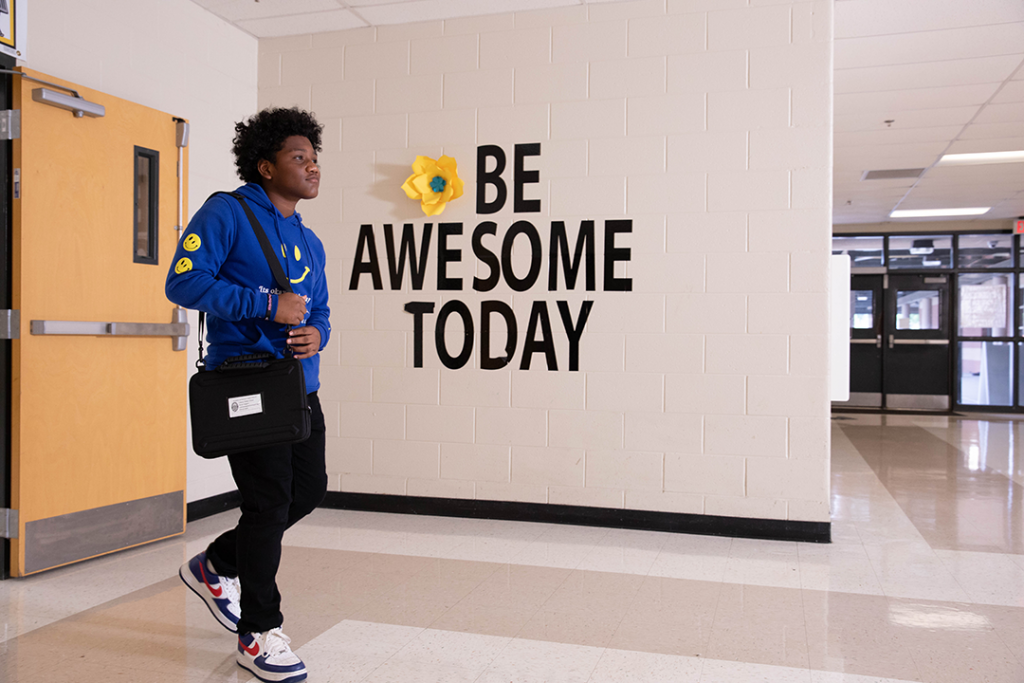Briana Jones was stunned when she earned a coveted spot in one of the world’s largest competitions for high school students. Once there, she faced stiff challenges from other top scholars from more than 75 countries.

There was some small chatter among the contenders after Briana Jones and her peers received first place at the regional science fair competition. The judges then stood to announce the final award for the student who would move on to the Regeneron International Science and Engineering Fair. Jones, who admittedly had tuned out the remainder of the program because she felt she was not in position to receive the honor, was in complete shock when they called her name.
Jones grew up loving mathematics. It had always been her favorite subject. It was not until middle school that she acquired a passion for science. Jones began to consider which careers in science she could enter and the pathways that might lead her there. Upon arriving at the Newton County College and Career Academy, she delved further into her love for science. Jones applied for and was accepted into the biotechnology program taught by 2022–23 Newton County “Teacher of the Year” Laura Lambert.
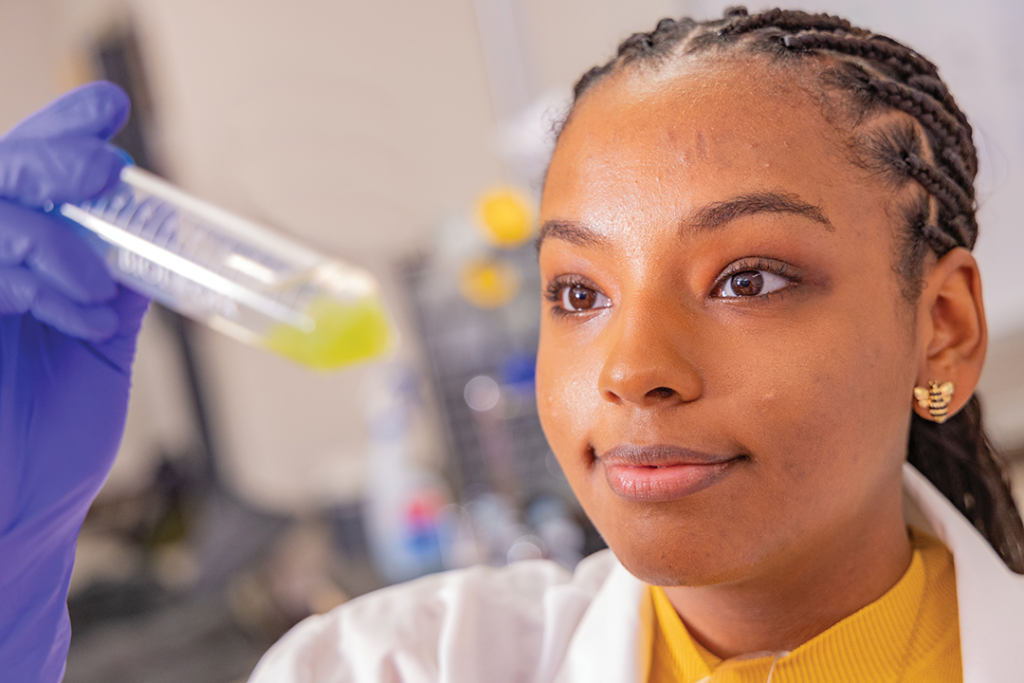
“There is not a lab like this anywhere else at any other school,” Lambert said, “so just being in the program is a huge opportunity to learn these new skills and push yourself.”
During her junior year of high school, one of Jones’ biotechnology class assignments was to edit a bacterium by adding protein and trying to solve a problem with it. She chose to edit cyanobacteria, commonly referred to as blue-green algae. When introduced to runoff from fertilizers, cyanobacteria grow rapidly. This overgrowth is a key ingredient in creating algae blooms— a prevalent problem in multiple community systems. The following year, Jones decided to revisit the bacteria experiment for her science fair project and see if movement affected cyanobacteria. She wanted to know whether movement caused it to grow faster or slow it down, perhaps even killing it. Her findings were the beginning of something more significant.
“I remember people telling me I had to get up because I was in shock.”
Briana Jones
Jones credited Lambert for spurring her interest in science. “Coming into the STEM program,” she said, “you’re told that it’s going to be very challenging, and of course it is, but with Mrs. Lambert, it wasn’t as challenging as it could have been.” She then pointed to Lambert’s ability to explain difficult subjects in a way that was conducive to learning.
By using real-world techniques Lambert taught them, the students were able to swab their cheeks for DNA, build 3D models of DNA and RNA, make algae beads and pursue many other fascinating projects. “To commend Briana even more, she’s by herself,” Lambert said. “A lot of people are in teams.” By the time Jones and her peers reached the regional competition, they were not confident they would advance further. Though Jones believed the awards presentation was over, the judges stood to announce who would be moving on to ISEF. Her name was on the list.
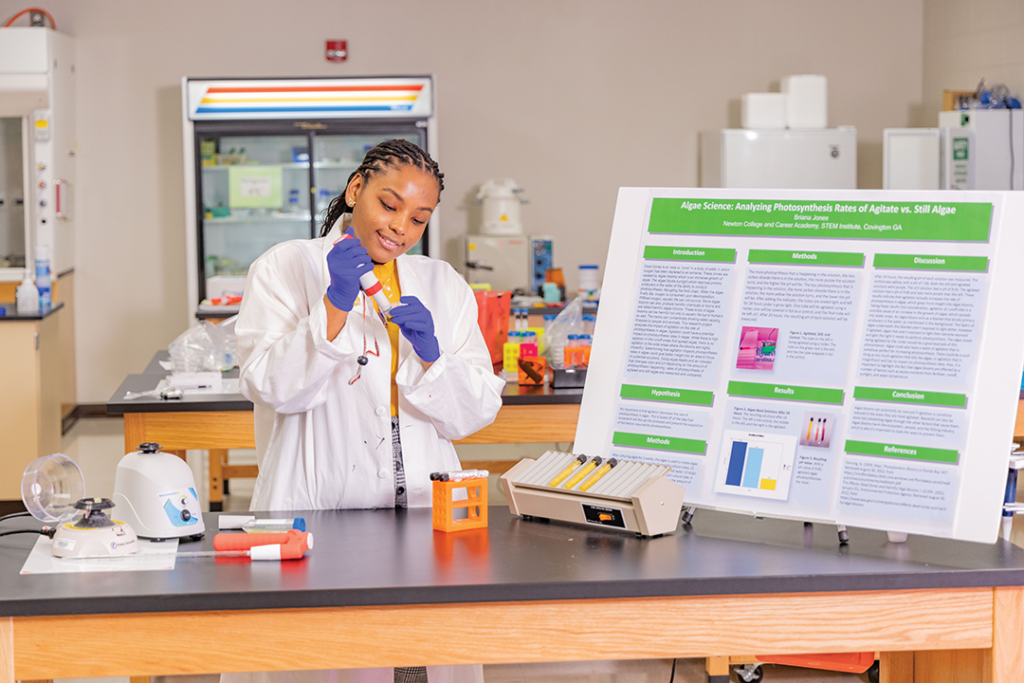
“I remember people telling me I had to get up because I was in shock,” she said.
Lambert, who was unable to attend the ceremony, watched in real time via Zoom.
“They’ve announced all of the places, and I’m kind of tuning out,” she said. “ISEF is really big. I think they did well. I mean, I’m happy for their accomplishments, and then when I saw a Newton College and Career Academy name pop up, I thought, ‘Oh my gosh, we’ve done it.’”
The ISEF selection process is competitive and offers two options for students to place at the final event. At regionals, judges choose three projects to move on to the ISEF without the student having to compete at the state level. Jones was one of the three chosen to bypass the state competition. Students who were not selected to move directly on to ISEF can still compete for a spot at the state level. In all, fewer than 40 students from Georgia advanced to ISEF.
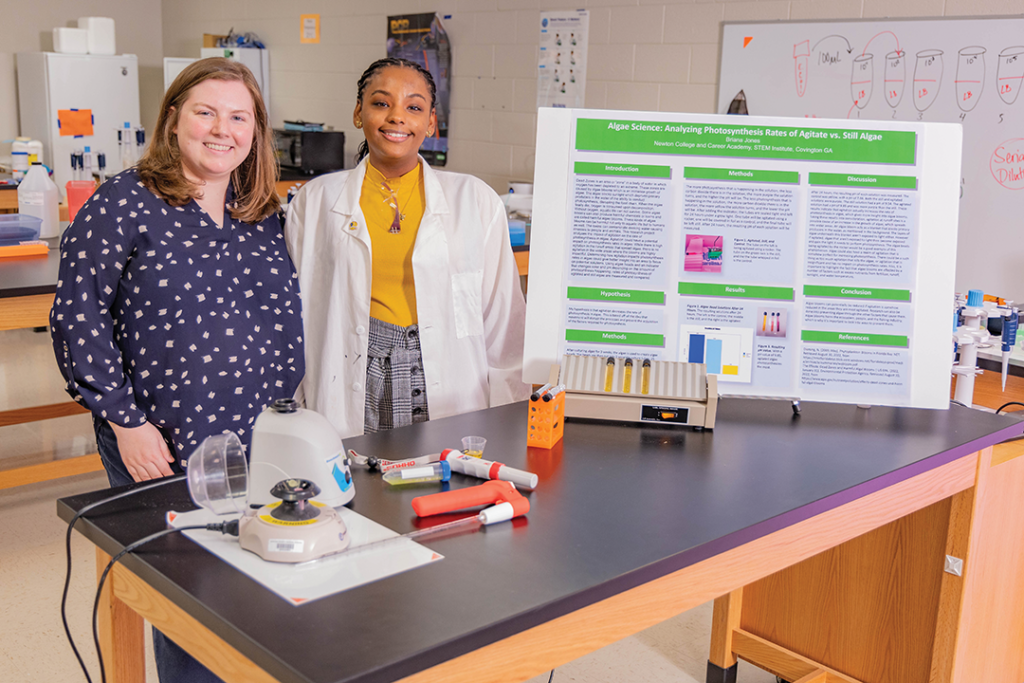
ISEF was held in May in Dallas. It included five days’ worth of presentations, with placements being awarded on the final day. Jones is only the third Newton County student to be chosen to participate at ISEF over the past 25 years. The honor was not lost on her.
“It’s not something you can just simply put on a resume,” Jones said. “It’s something you can talk about and show how much you know and how much experience you have dealing with and being in science and biotechnology.”
Jones plans to attend Seattle University in the fall, with a double major in business and science. She feels confident in her ability to handle the workload.
“I’m not worried about college,” Jones said, “because the level I’m at is a collegiate level.”
Click here to read more stories by Rebecca McDaniel.

